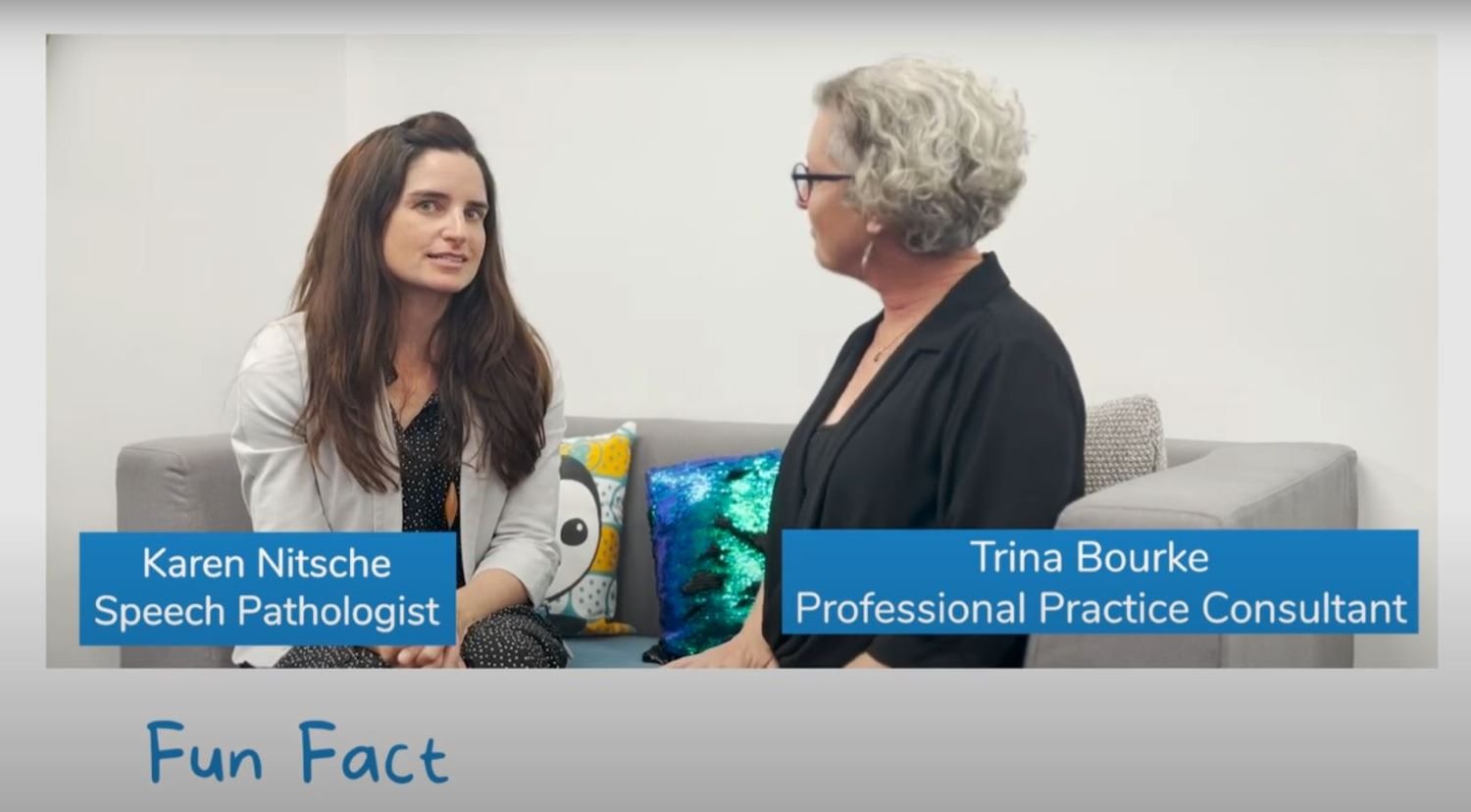Let’s chat about what to do if your little one isn’t talking yet.
Hi there…
Talkable is a speech therapy course for all parents.
So whether you:
want to understand how babies learn to talk
want to learn baby sign language
have a two year old who’s not talking
think your child might need speech therapy
want the skills to help your baby or toddler learn how to talk
then this course has you covered.
All of the information you’ll find on the course has been carefully put together by me, a speech therapist, and is based on the latest research in the area of early language development.
Have you ever thought…
My two year old’s not talking but they understand me
Help! I have a very active toddler who’s not talking
How can I help my toddler talk?
Why is my toddler not talking at 3?
When do babies start saying mama?
Then the Talkable course is the best speech therapy app for you.
Did you know that the number of words a child can say at 2 is one of the best predictors of their later academic success?
The good news is there’s so much that you can do with your baby or toddler today to help them reach their full potential.
Find out what you can be doing to help your child get the best start in life with our free:
Top 10 Tips to Help Your Baby Talk.
Helping Your Child Learn to Talk: Expert Tips and Resources
Is your 2-year-old not talking yet?
It's natural to feel concerned when your toddler is late to talk. Every child develops at a different pace within a range that we call ‘typical development’. As a parent, observing your child's development is a journey filled with milestones. Developmental delays and difficulty with communication can manifest in various ways, from challenges in forming speech sounds to difficulties in using two-word phrases appropriately. If you're noticing delays in your child's language or speech milestones, there are proactive steps you can take to support the development of their communication skills.
Understanding Developmental Delays - Speech Delay versus Late Talker
While some children catch up on their own, others may benefit from early intervention through speech therapy or guidance from a speech-language pathologist (SLP). A speech delay refers to a significant lag in speech development compared to peers, whereas a late talker may eventually catch up without formal intervention.
What to Look Out For
- Understanding versus speaking: Your 2-year-old may understand everything you say but struggle to express themselves verbally.
- Limited words or vocabulary: No words at 12 months and less than 50 words at two years. Using single words instead of phrases.
- Trouble producing speech sounds: Using only a limited number of speech sounds making it very hard to understand what they’re saying.
- Lack of progress: Not adding new words to their vocabulary on a weekly and monthly basis.
Causes of Speech and Language Delay
Several factors can contribute to delayed speech, including hearing problems, developmental disorders like autism spectrum disorder (ASD), too much screen time, not being regularly exposed to a language-rich learning environment or simply differences in how each child develops.
When to Seek Help
If you're concerned about your child's speech or language development, speak with your child's doctor or a speech-language pathologist (also known as a speech pathologist or speech therapist). They can conduct a thorough evaluation to determine if there's a need for intervention or if your child's development falls within the expected range for their age.
Supporting Your Child's Speech and Language Developmental Milestones
Early intervention (in the years before your child starts school) is crucial when it comes to speech and language development. So, if you're unsure about your child's progress or have concerns about their language milestones, don't hesitate to reach out for support. Early intervention programs can provide structured guidance and resources to improve your child's communication skills and overall development.
Whether your child is struggling with expressive language delay, such as difficulty using words, or has other issues like hearing loss (which can impact their ability to learn new words and sounds) seeking guidance from a speech-language pathologist (SLP) can provide you with clarity and effective strategies to help.
How Speech Therapy Can Help
Speech-language pathologists are experts at identifying, understanding and supporting children with speech and language difficulties. Their university training provides them with specialist knowledge in both typical development and a wide range of neurodevelopmental disorders including autism, global developmental delay, language disorder, speech sound disorder, childhood-onset fluency disorder (stuttering), social (pragmatic) communication disorder as well as other unspecified communication disorders.
Benefits of Speech Therapy:
- Understand your child’s development: an assessment will give you a clear picture of your child’s strengths and areas they need help with. It will also help to uncover any underlying causes of speech or language delay.
- Early intervention: addressing issues early can significantly improve your child’s development, as their brain is rapidly changing in the first 5 years of life. Early speech and language skills are important for later literacy and academic success.
- Parental guidance: Your speech-language pathologist will teach you techniques to support your child's speech and language development at home.
- Targeted Interventions: A speech therapist will design activities specifically for you and your child to help improve their speech sounds and enhance expressive language skills every day at home.
- Introduction to Key-word Sign Language: For children with delayed language and speech difficulties, keyword sign language can facilitate communication while they develop their spoken language skills. Learn more about using key-word signs with your little one here.
- Support for other Developmental Milestones: Therapy sessions are tailored to meet your child's specific needs and promote overall development. This includes social, physical and cognitive development.
Supporting Your Child at Home
Tips for Parents:
- Create a language-rich environment: Encourage communication through sharing books, singing songs, and using simple words in everyday interactions.
- Use simple words and phrases: Speak clearly and at your child's level.
- Encourage social interaction: Playtime with peers and family members can boost communication skills.
Taking the Next Steps
If you think your child may have a speech or language delay or if they are not meeting typical speech milestones, taking action early is the best approach. Whether it's scheduling a hearing test or consulting with a speech therapist, addressing potential issues early can make a significant difference in your child's overall development.
Remember, Every Child Develops at Their Own Pace
Every child progresses at their own pace. Celebrate each milestone, whether it's the first word or the mastery of new phrases. Recognising and supporting your child's unique journey in speech and language development is the key to fostering confidence and encouraging further progress.
Supporting Your Child's Speech and Language Journey
By staying attuned to your child's development and seeking early intervention if needed, you play the most important role in their speech and language journey. Whether it's through creating a language-rich environment at home, exploring key-word sign language or seeking speech therapy or there are so many ways to maximise your child's communication development.
With patience, understanding, and the right support, your child can reach their full communication potential. This might be through verbal communication or alternative ways to communicate. Start exploring ways to enhance your little one's language abilities with the Talkable app today!
What parents have said about the Talkable speech therapy app
“The app has lots of great tips for encouraging good language development. It has some good ideas for activities. Such a wonderful resource to help improve communication with my daughter!”
“I can't recommend it highly enough! Very user friendly. I found it helpful and supportive when dealing with my daughter's speech delay.”
“This app is amazing. Simple to follow, entertaining and extremely informative. I'll definitely be recommending it to my friends!”




























